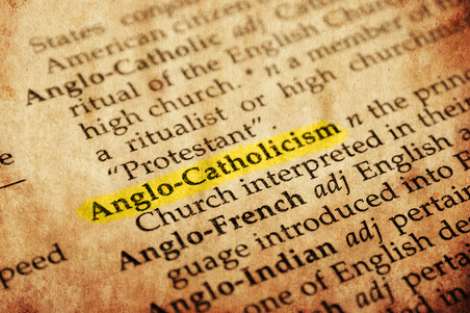Keywords: Australian Religious Thought
There are more than 200 results, only the first 200 are displayed here.
-

RELIGION
- Frank Brennan
- 09 December 2015
2 Comments
'I joined the Jesuits in 1975 just as the previous 32nd General Congregation (GC32) was concluding. Pedro Arrupe was at the height of his powers. That Congregation asked the question: 'What is it to be a companion of Jesus today?' and answered unequivocally, 'It is to engage, under the standard of the Cross, in the crucial struggle of our time: the struggle for faith and that struggle for justice which it includes.' I have always regarded myself as a GC32 Jesuit. Many of those who gathered for GC33 thought that the GC32 mission was a little too one-dimensional. I suspect Bergoglio was one of those.' Frank Brennan on the eve of the Catholic Church's Jubilee Year of Mercy.
READ MORE
-

RELIGION
- Frank Brennan
- 04 December 2015
1 Comment
'Tonight, gathered here in the Southern Cross Club in the national capital, gathered as Eureka's children. We affirm that there is room for everyone under the Southern Cross. I hope you will return to Canberra carrying the Southern Cross flag when we proclaim the Australia Republic on 1 January 2020 which will be two elections after Australia last had a monarchist leader of a major political party. Tony Abbott is the last of his type. Whether the prime minister honoured to witness the proclamation is Malcolm Turnbull, Bill Shorten or another matters not.' Annual Dinner for Eureka's Children, Southern Cross Club, Canberra, 3 December 2015.
READ MORE
-

RELIGION
- Frank Brennan
- 03 December 2015
The consideration of medico-legal problems in the public square of a pluralistic democratic society keeping pace with profound technological change is often marked by simplistic assertions, precluding considerations of comprehensive world views, whether religious or philosophical. It is now commonplace for doctors to be told to leave their consciences at the door, as their patients are consumers and they are suppliers and of course the market decides. Debates about law and policy are often resolved with simplistic assertions about individual rights and autonomy, with little consideration for the public interest, the common good, and the doctor-patient relationship. Even conscience is said to be a matter for contracting out. This evening I ask whether there are more compelling ways to resolve medico-legal dilemmas, while conceding a limited role for law in determining the range of acceptable answers.
READ MORE
-

EUREKA STREET TV
- Peter Kirkwood
- 25 November 2015
'The people who were most impacted were people in developing countries who I've cared about my whole life. And then I started having grandchildren too, so that passion to do something about climate change was turbo charged. The thought of little kids being swept out to sea because of a typhoon, or killed in a cyclone - they haunt me.' Thea Ormerod, President of Australian Religious Response to Climate Change, was arrested last year while protesting the Maules Creek mine site in NSW.
READ MORE 
-

RELIGION
- Frank Brennan
- 24 November 2015
46 Comments
Last week the Herald Sun reported: 'Victims of child sexual abuse look set to be grilled by lawyers for Pell in a bid to quash explosive allegations he was complicit in a widespread cover-up.' As the Royal Commission into Institutional Responses to Child Sexual Abuse recommences its case study on the Catholic Church in Ballarat, it's only fair Pell have his lawyers cross examine these victims. His reputation is on the line and the commission has spared no effort in scrutinising his past actions.
READ MORE 
-

AUSTRALIA
- Frank Brennan
- 23 October 2015
4 Comments
Francis knows there are all sorts of issues inside and outside the Church where for too long people with power have tried to keep the lid on, in the hope that the problems and complexities will go away, often by parodying those who see the problems or complexities as small 'l' liberals or cafeteria Catholics. He delights in being joyful and troubled while contemplating big problems, calling people of good will to the table of deliberation reminding them of the kernel of the Christian gospels. He has the faith and hope needed to lift the lid without fear and without knowing the answers prior to the dialogue occurring.
READ MORE
-

AUSTRALIA
- Frank Brennan
- 16 October 2015
2 Comments
I acknowledge those Aborigines and Torres Strait Islanders who insist that they have never ceded their sovereignty to the rest of us. I join with those Aborigines and Torres Strait Islanders who hope for better days when they are recognised in the Australian Constitution. As an advocate for modest constitutional recognition for Indigenous Australians, I respect those Aborigines and Torres Strait Islanders who question the utility of such recognition. But I do take heart from President Obama's line in his Charleston eulogy for the late Reverend Clementa C. Pinckney: 'Justice grows out of recognition'.
READ MORE
-

- Jenny Te Paa
- 09 October 2015
16 Comments
Thank you Francis, for although you have not spoken at any length about theological education per se — any more than you have spoken about the status of women per se — in spite of these somewhat startling omissions, this indigenous lay woman theological educator feels no less inspired, comforted, reassured, blessed, beyond imagining by your gentle, wise, insistent and prophetic urgings.
READ MORE
-

AUSTRALIA
- Paul Jensen
- 21 September 2015
5 Comments
Malcolm Turnbull's main justification for challenging Tony Abbott was that the former PM was not capable of providing the economic leadership the nation needs. Abbott's leadership style emphasised strength rather than consultation, which is what he thought people wanted. What they actually wanted was revealed in a recent survey conducted by Swinburne University.
READ MORE 
-

- Frank Brennan
- 18 September 2015
Pope Francis's concerns are not narrowly dogmatic or pedagogical but universally pastoral. He knows that millions of people, including erstwhile Catholics, are now suspicious of or not helped by notions of tradition, authority, ritual and community when it comes to their own spiritual growth which is now more individual and eclectic. He wants to step beyond the Church's perceived lack of authenticity and its moral focus on individual matters, more often than not, sexual. He thinks the world is in a mess particularly with the state of the planet — climate change, loss of biodiversity and water shortages, but also with the oppression of the poor whose life basics are not assured by the operation of the free market, and with the clutter and violence of lives which are cheated the opportunity for interior peace. He is going to great pains to demystify his office. He wants all people of good will to emulate him and to be both joyful and troubled as they wrestle with the probl
READ MORE
-

- Frank Brennan
- 01 September 2015
1 Comment
If you want to form government in Australia and if you want to lead the Australian people to be more generous, making more places available for refugees to resettle permanently in Australia, you first have to stop the boats. If you want to restore some equity to the means of choosing only some tens of thousands of refugees per annum for permanent residence in Australia from the tens of millions of people displaced in the world, you need to secure the borders. The untrendy truth is that not all asylum seekers have the right to enter Australia but that those who are in direct flight from persecution whether that be in Sri Lanka or Indonesia do, and that it is possible fairly readily (and even on the high seas) to draw a distinction between those in direct flight and those engaged in secondary movement understandably dissatisfied with the level of protection and the transparency of processing in transit countries such as Malaysia and Indonesia. The popular evil is that political
READ MORE
-

RELIGION
- Kevin Donnelly
- 31 August 2015
23 Comments
Various state based legislation argues that education in government schools should be secular in nature, but it does not rule out a place for religion in the general curriculum. To argue that religions should have a greater place in the school curriculum is not to proselytise. Rather it is to recognise that, while we are a secular society, students need to encounter a more transcendent sense of life that incorporates a strong moral, spiritual and ethical dimension.
READ MORE 